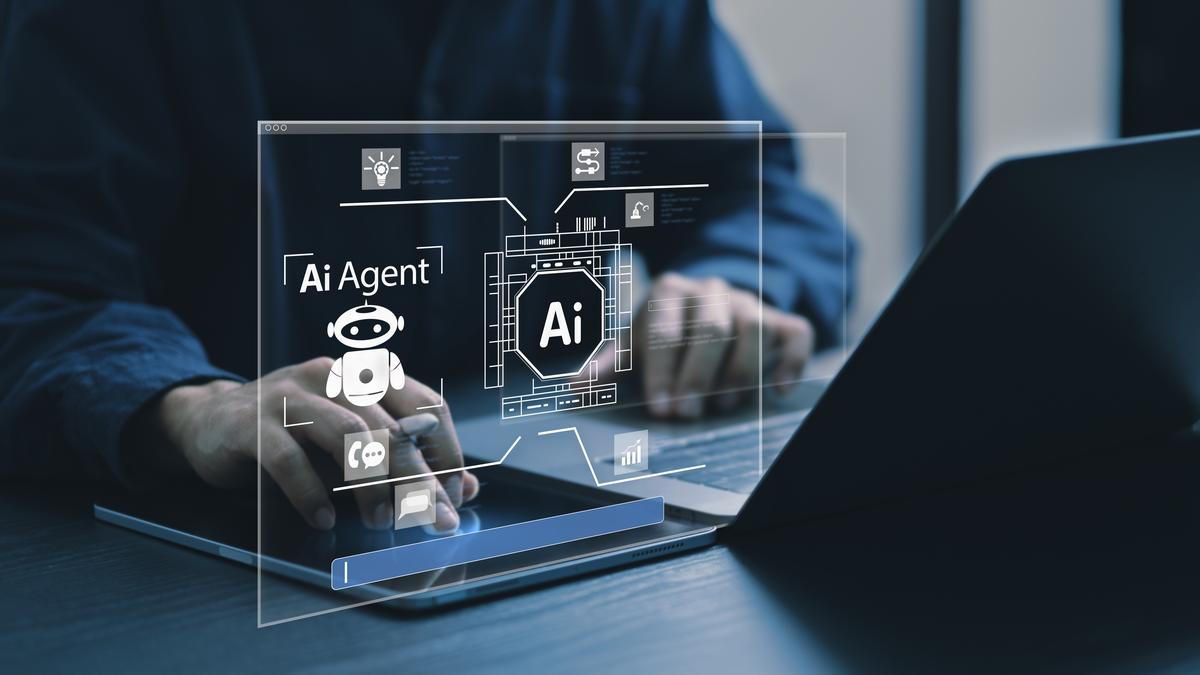
AI lacks human intuition and it is very important not to discard the traditional methods of analysis when it comes to securities trading.
| Photo Credit: Getty Images
Imagine a world where artificial intelligence could predict stock market movements with accuracy. It sounds like a dream come true for investors and traders. But, what if that dream could turn into a nightmare? As artificial intelligence continues to advance at an unprecedented pace in the 21st century, the concept of applying agentic AI to stock market prediction has captured the attention of both researchers and institutions that deal with revenue and finance, but not in a good way. Agentic AI is the AI system that can autonomously accomplish any goals and take any action without being dependent on human supervision.
While generative AI starts being put into effect with certain prompts and instructions only when an interaction takes place, agentic AI has the ability to take initiative for an action, learn, solve and adapt according to the changing circumstances without any need for a prompt or interaction. Agentic AI refers to artificial intelligence systems that are capable of autonomous action. These systems, often referred to as AI agents, can pursue goals independently, without direct human intervention. To do so, they use advanced techniques such as reinforcement learning and evolutionary algorithms (TechTarget, 2024)
An agentic AI system is designed to make decisions, handle complex situations and, in some cases, adjust its behaviour autonomously. The AI agent operates without human oversight, instead it uses algorithms and environmental data. However, this particular use of AI is a mixed bag, both boon and bane; as exciting as the prospects of agentic AI, there are challenges that come with it. Though the use of agentic AI in this domain is supposed to aid in analysing market-trends, make trading decisions or even to manage your portfolios, this sure does pose significant risks and challenges that outweigh these potential benefits.
It is undeniable that artificial intelligence is indeed revolutionising the world; however it most definitely lacks something crucial which is human intuition and it is very important that we do not discard the traditional methods of analysis when it especially comes to securities trading.
Agentic AI is the basis and AI agents are some sort of the finished product which takes action. One of the most pressing concerns is that this can replace human functioning as it is clearly tasked to get through with a human task and behave like a human being in terms of accomplishment of tasks. The main feature of AI agents is their decision-making skills without any kind of dependency and this shall not need human oversight, which can lead to any unfavourable actions in industries where the stakes are high like finance or healthcare. Speaking of finance, any seasoned trader might sense market sentiment shifting based on subtle cues in press conferences. Human analysts can factor in the potential impact of emerging geopolitical tensions, election news , policy changes by the Government or natural disasters. Experienced investors often rely on a “gut feeling” that they have developed over years of market observation. Therefore, by relying too heavily on AI predictions, we risk losing this valuable human perspective and this presents risks where human oversight is crucial but may be ignored by the agent’s autonomous decisions.
Moreover, since the functioning shall be happening on the basis of a particular algorithm, just like any other artificial intelligence, there will be the inherent risk of bias. The historical data used to train AI models may not represent future market conditions. There are chances that these models may overestimate market performance by focusing on successful companies while ignoring those that have miserably failed. Instances of temporal bias can also take place while bearing the assumption that past patterns will continue to be used in the future, despite the dynamic nature of financial markets.
For further discussion, let us paint an illustration by taking an AI system that is equipped with real-time data from many sources and begins to recognise patterns that allows it to predict prices of shares with accuracy. As more investors shall run behind to use this system, these predictions shall just become self-fulfilling prophecies. Hence, the market begins to move not based on real economic factors, but on the predictions made by this AI system. This is very dangerous to the economy as we know. If this practice becomes a norm, there could be artificial inflation and deflation of the price & increase in volatility, which in turn just weakens the principles of fair practices in the stock market.
With these major concerns and oppositions being highlighted, it is time for being open in having a regulatory concern because the objective is not to eliminate the use of agentic AI, but to just channel it in the right direction. The regulation would indeed require AI developers, financial authorities, and policymakers to attempt in making a collaborative effort in guarding the practices of stock market trading.
Published – April 27, 2025 03:18 am IST
